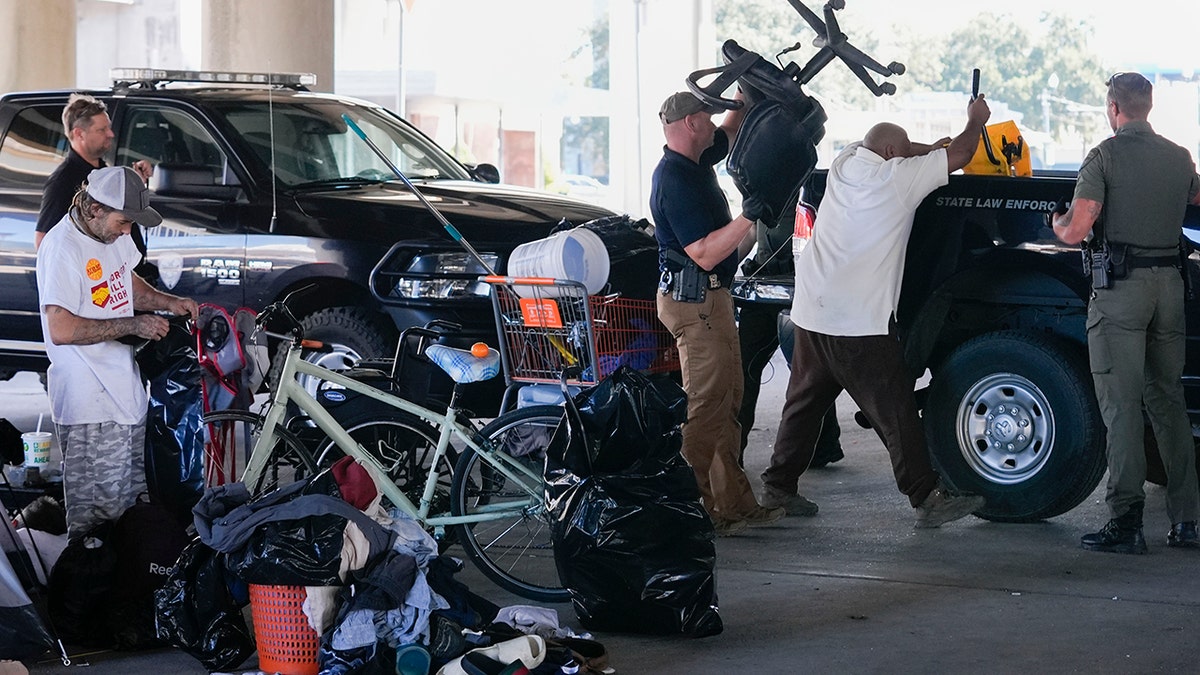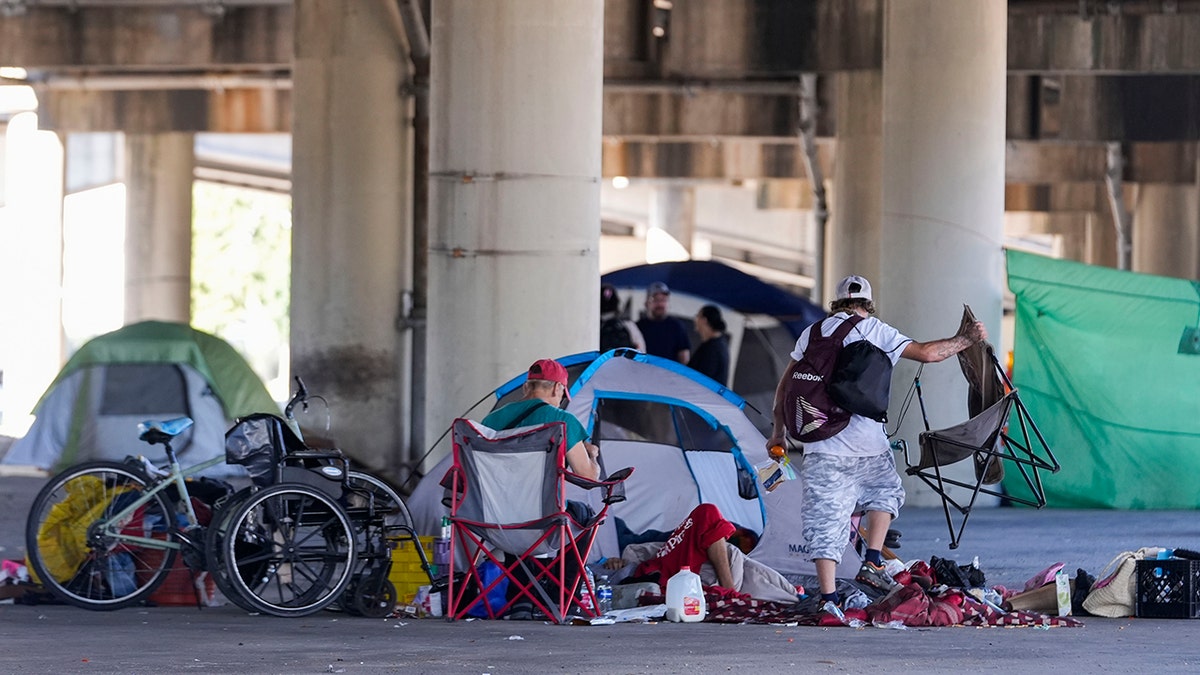A Louisiana judge has temporarily blocked Gov. Jeff Landry’s efforts to clear any more homeless encampments in New Orleans after relocating dozens of people living in tents near the Superdome, where Taylor Swift was playing three shows over the weekend.
Landry used Louisiana State Troopers and Department of Wildlife and Fisheries officers to relocate about 75 people living in tents beneath an overpass near the venue just days before the pop star’s performances attracted an estimated 150,000 people to the city.
Some homeless people who were forced to relocate during the sweep, however, filed a lawsuit arguing that state troopers violated their constitutional rights by illegally searching, seizing and destroying their property, disposing of their prized possessions and “forcibly herding” them away.
One legal observer even heard state troopers telling the homeless that “the governor wants you to move because of the Taylor Swift concert,” the lawsuit alleges.
NEW ORLEANS SWIFTIE BOOKS 191 HOTEL ROOMS AHEAD OF CONCERT
Louisiana Wildlife and Fisheries agents assist state police as they give instructions to people living in a homeless encampment to move to a different pre-designated location as they performed a sweep in advance of a Taylor Swift concert in New Orleans on Wednesday. (AP Photo/Gerald Herbert)
In response to the lawsuit, Judge Lori Jupiter granted a temporary restraining order on Friday. The order, in effect until Nov. 4, directs state law enforcement officials to not “destroy or dispose of the property of unhoused people without judicial process” and to notify people in the “state-sanctioned camp” that they are “free to leave.”

State officers on Wednesday relocated about 75 homeless people who lived in an encampment near a venue hosting three Taylor Swift concerts in New Orleans. (AP Photo/Gerald Herbert)
Landry’s orders relocated about 75 people who were living in a tent encampment on Calliope Street under the Pontchartrain Expressway roughly two blocks away, Louisiana State Police said.
Landry’s spokeswoman, Kate Kelly, issued a statement to local media saying the move was meant to address homelessness and safety issues in preparation for the upcoming Taylor Swift concerts on Friday, Saturday and Sunday, and February’s Super Bowl.

City officials in New Orleans opposed the relocation of the homeless at the encampment, arguing it would disrupt progress in finding long-term, permanent housing for those affected. (AP Photo/Gerald Herbert)
“As we prepare for the city to host Taylor Swift and Super Bowl LIX, we are committed to ensuring New Orleans puts its best foot forward when on the world stage,” Kelly said.
Officials in New Orleans, however, criticized the sweep, arguing it would disrupt progress in finding long-term, permanent housing for those affected.
The Associated Press contributed to this report.



